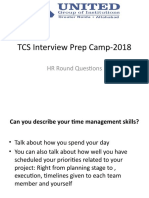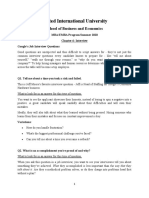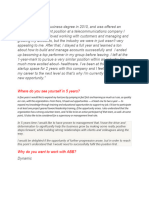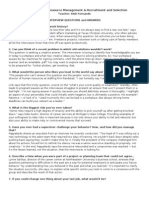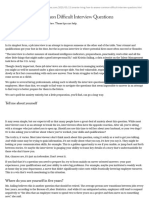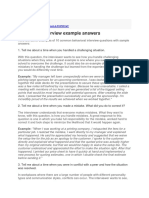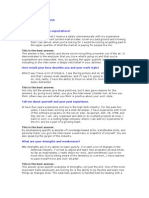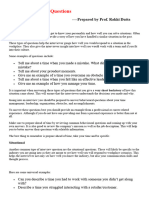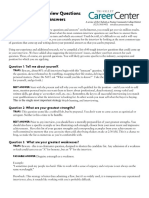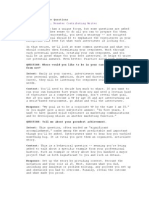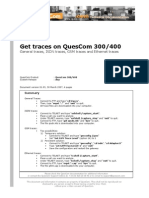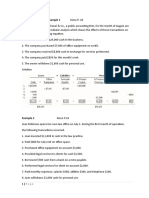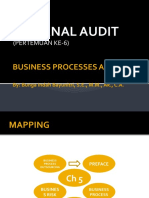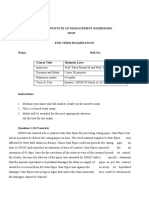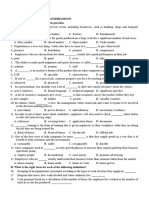0% found this document useful (0 votes)
124 views2 pagesSample Anwers To Problem Solving Questions
The document outlines common problem-solving interview questions and provides sample answers to help candidates prepare. It emphasizes the importance of demonstrating a structured approach to problem-solving, effective communication, and learning from mistakes. Additionally, it advises candidates on what to avoid during their responses, such as giving generic answers or losing confidence.
Uploaded by
binuscariasdbCopyright
© © All Rights Reserved
We take content rights seriously. If you suspect this is your content, claim it here.
Available Formats
Download as DOCX, PDF, TXT or read online on Scribd
0% found this document useful (0 votes)
124 views2 pagesSample Anwers To Problem Solving Questions
The document outlines common problem-solving interview questions and provides sample answers to help candidates prepare. It emphasizes the importance of demonstrating a structured approach to problem-solving, effective communication, and learning from mistakes. Additionally, it advises candidates on what to avoid during their responses, such as giving generic answers or losing confidence.
Uploaded by
binuscariasdbCopyright
© © All Rights Reserved
We take content rights seriously. If you suspect this is your content, claim it here.
Available Formats
Download as DOCX, PDF, TXT or read online on Scribd
/ 2



